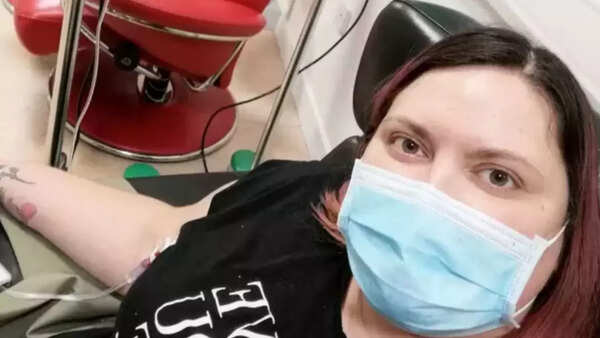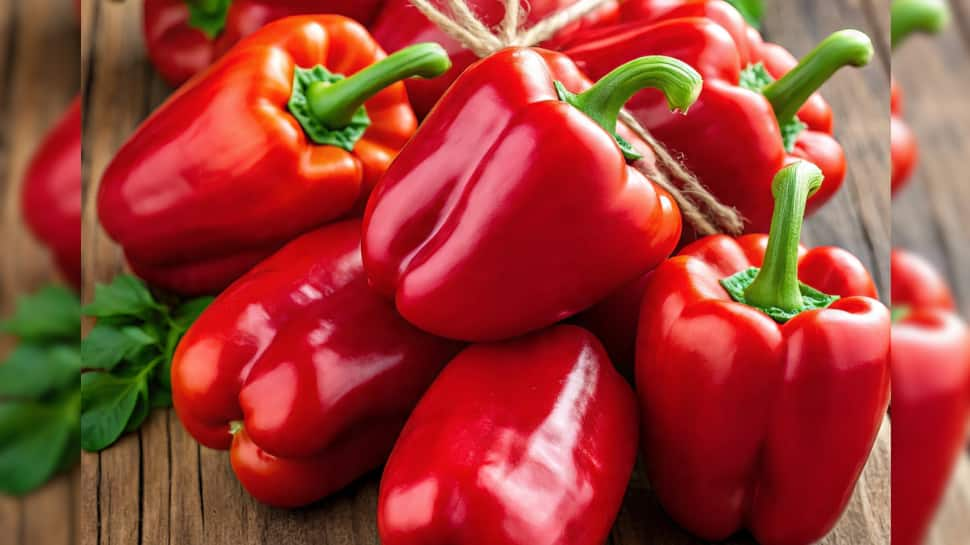She was told it was just heartburn—now she has 12 months to live with rare and aggressive stomach cancer |

Georgia Gardiner, a bright 28-year-old mother from Leeds, started experiencing constant nausea, stomach cramps, and a total loss of appetite last summer. Doctors initially put her symptoms down to acid reflux and prescribed her antacids. But the severity of her condition kept getting worse; she lost almost three stone in a matter of months and could hardly hold food down. Even though she made “six to nine” trips to her GP and local hospital, Georgia was consistently reassured it was probably just indigestion or heartburn. Her symptoms were dismissed, and her concerns were ignored. Only after months of pushing was she eventually referred for more targeted tests. She’s now using her own experience to inspire others to push doctors to do more testing if they don’t feel right.
From stomach pain to cancer diagnosis: Georgia discovered she had cancer at 28
Eventually put on an open-ended symptoms pathway, Georgia was subjected to an endoscopy. The scan brought the horrifying truth to light she had linitis plastica, or a rare and aggressive stomach cancer. Sometimes referred to as “leather bottle stomach,” this cancer causes the lining of the stomach to thicken and the stomach to fail to function.By the time she was diagnosed on June 13, 2024, cancer had already metastasised to Georgia’s lymph nodes and other organs. Physicians told her the disease was terminal and put her at only 12 months to live. Treatment, they explained, would be symptom-managing and quality-of-life enhancing.“I felt invincible. I never thought that I would develop cancer at 28. My world fell apart when I was informed that it is incurable,” Georgia said.

Source: LADbible
Georgia’s message: ‘Don’t ignore symptoms, push for answers’
Georgia is now focused on making the most of the time she has left with her fiancé Callum Scott and their two-year-old son Arlo. The couple have brought their wedding plans forward, knowing time is of the essence. Georgia is determined to create memories, not regrets.“The thing that breaks me is how much I’ll miss in Arlo’s life. He gives my life purpose,” she said. Still, she’s holding strong for her son, deciding to battle the cancer “in every way possible.” “Had I been taken seriously sooner, perhaps we could have nipped it in the bud before it spread. I just want others to get it in time,” she explained. Her message is clear: don’t ignore your symptoms, and don’t be afraid to insist on answers.

Source: LADbible

Source: LADbible
What is Linitis Plastica
Linitis plastica is a rare adenocarcinoma that occurs in the stomach lining glands. It stiffens and thickens the stomach walls, usually called “leather bottle stomach.” Due to its quick development and not very noticeable early signs, it’s often diagnosed late.
Linitis Plastica: Signs and symptoms of rare stomach cancer
- Long-term stomach pain
- Early satiety after meals
- Nausea and vomiting
- Sudden loss of weight
- Indigestion or heartburn
- Trouble swallowing
- Black or tarry stools
Unluckily, its virulence does not make it easy to cure, particularly after it has metastasised from the stomach wall.
Causes of Linitis Plastica
According to the reports, the exact cause of linitis plastica is unknown. This rare stomach cancer is strongly linked to a specific type of stomach cancer known as diffuse-type gastric adenocarcinoma. According to the reports, in some cases, genetic mutations, particularly in the CDH1 gene, are responsible. This gene mutation is associated with a hereditary condition called hereditary diffuse gastric cancer (HDGC), which significantly increases the risk of developing linitis plastica.Apart from genetic predisposition, several environmental and lifestyle factors may contribute to its onset. These include:
- Infection with Helicobacter pylori – a common bacterium linked to chronic inflammation of the stomach lining and gastric cancer
- Dietary habits – especially high intake of salty, smoked, or processed foods
- Smoking – which is known to increase the risk of various gastric cancers
Together, these factors may contribute to the development and progression of this rare and aggressive form of stomach cancer.
Why is gastric cancer ‘Linitis Plastica’ difficult to cure
Linitis plastica progresses quietly, with little to no symptoms in its initial stages. By the time there are noticeable symptoms such as stomach pain, nausea, weight loss, or trouble eating; the cancer may already be at an advanced stage. This late diagnosis greatly restricts treatment choices.This cancer is extremely aggressive. It tends to rapidly spread through the wall of the stomach and into nearby tissues like lymph nodes, liver, pancreas, and peritoneum (the lining of the abdominal cavity). Because it disseminates so rapidly, it is challenging to contain or surgically resect.
- Surgery is often not an option
Since linitis plastica involves the whole stomach lining and surrounding structures, it is not usually localized. The cancer might have grown too far by the time it is found for surgery to be safe or successful. Surgeons in some instances try palliative surgeries, but total surgical resection is not common.
- Failure to respond to chemotherapy
Unlike certain cancers that shrink or react to chemo, linitis plastica tends to be resistant to conventional chemotherapy. This restricts the effectiveness of medical therapies aimed to halt or impede its development, rendering disease control challenging.Also Read | Shocking Warning! Bread, potatoes, and cereal may contain cadmium linked to cancer, high BP, and other risks especially for children








